Swiss fear coronavirus curbs intrude on personal rights

Concerns about loss of personal freedoms appear to be growing in Switzerland following weeks of restrictions on public life aimed at curbing the coronavirus pandemic.
An opinion poll published on Thursday also found attitude towards the crisis have generally become more similar among the country’s three main language regions.
“There is a striking unease about a possible loss of personal freedoms in the long-term,” says Michael Hermann, head of the Sotomo research instituteExternal link which carried out the survey.
A growing number of respondents are concerned because they believe restrictions might stay in place for at least another 12 months, he says.
This latest survey stands in contrast to a much more optimistic assessment in April when nearly 30% of those surveyed were hopeful the lockdown measures would all be lifted in early summer.
Fears of a negative impact of the pandemic on the Swiss economy remain high, while concerns about suffering from virus-related health problems have moved down the list.
Great holiday?
The survey – the third of its kind since March, when the government ordered sweeping measures restricting public life and the economy – found that people have coped well with the lockdown.
“One factor is undoubtedly that there was no general curfew. Unlike residents in other countries, people in Switzerland could still leave their homes and they did so as the survey shows,” Hermann says.
There may be some truth to the saying that the Covid-19 pandemic is the Great Depression in the United States, while it feels more like great holidays in Switzerland, he quipped.
Hermann also pointed out that the full force of the crisis has yet to hit, as most people in Switzerland, regardless of the language region, are not yet fully aware of the economic impact.
So far, many have benefited from the unemployment scheme and Switzerland’s social security system.
Easing lockdown
Most respondents said they agreed with the government’s staggered policy of easing the lockdown. The second phase comes into force next Monday with the re-opening of all shops, schools resuming classes and public transport going back to regular service.
However, borders remain closed and mass events are banned until at least the end of August, dampening hopes of a long holiday abroad or of music and sport events with crowd attendance.
Language regions
Responses differ among the country’s three main language regions, but Hermann says that overall the differences have narrowed, especially between the majority German-speaking and the French-speaking parts.
But the Italian-speaking region, which borders northern Italy – a hotspot for the pandemic in Europe – is clearly more in favour of restrictions and a slower lifting of the curbs.
The wearing of protective masks for shoppers, the re-opening of obligatory schools as well as restaurants and bars are just three potential areas of conflict, highlighting the federalist structure of Switzerland. The system gives each of its 26 cantons a large degree of autonomy, notably on health and education matters.
Virtually unchanged is people’s high trust in the government, as the graphic below shows.
Compared with previous Covid-19 surveys, the French-speaking region has become slightly less critical of the official policy.
However, a slim majority of respondents agree that the government should keep its extra powers during the Covid-19 pandemic, including the right to impose emergency measures without giving parliament – or the people – a say.
This might come as a surprise amid Switzerland’s political system, often portrayed as a model of direct democracy.
The online survey is based on answers of 32,485 respondents over the age of 15 across the country.
It was carried out between May 2 and May 5.
The margin of error is +/-1.1%.
The poll is the third first in a series of surveys by the Sotomo research institute on behalf of the Swiss Broadcasting Corporation, swissinfo.ch’s parent company.

More
Coronavirus: the situation in Switzerland

In compliance with the JTI standards
More: SWI swissinfo.ch certified by the Journalism Trust Initiative

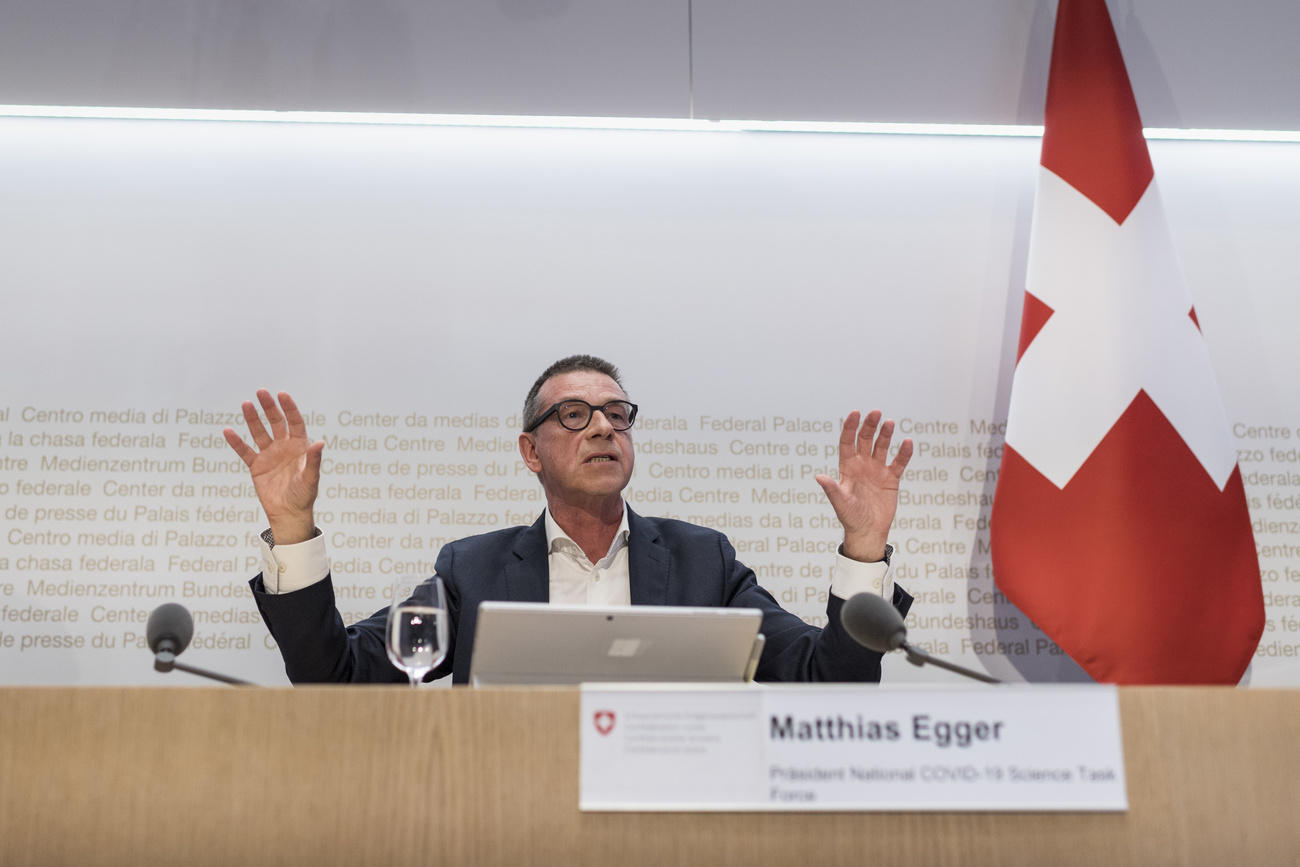
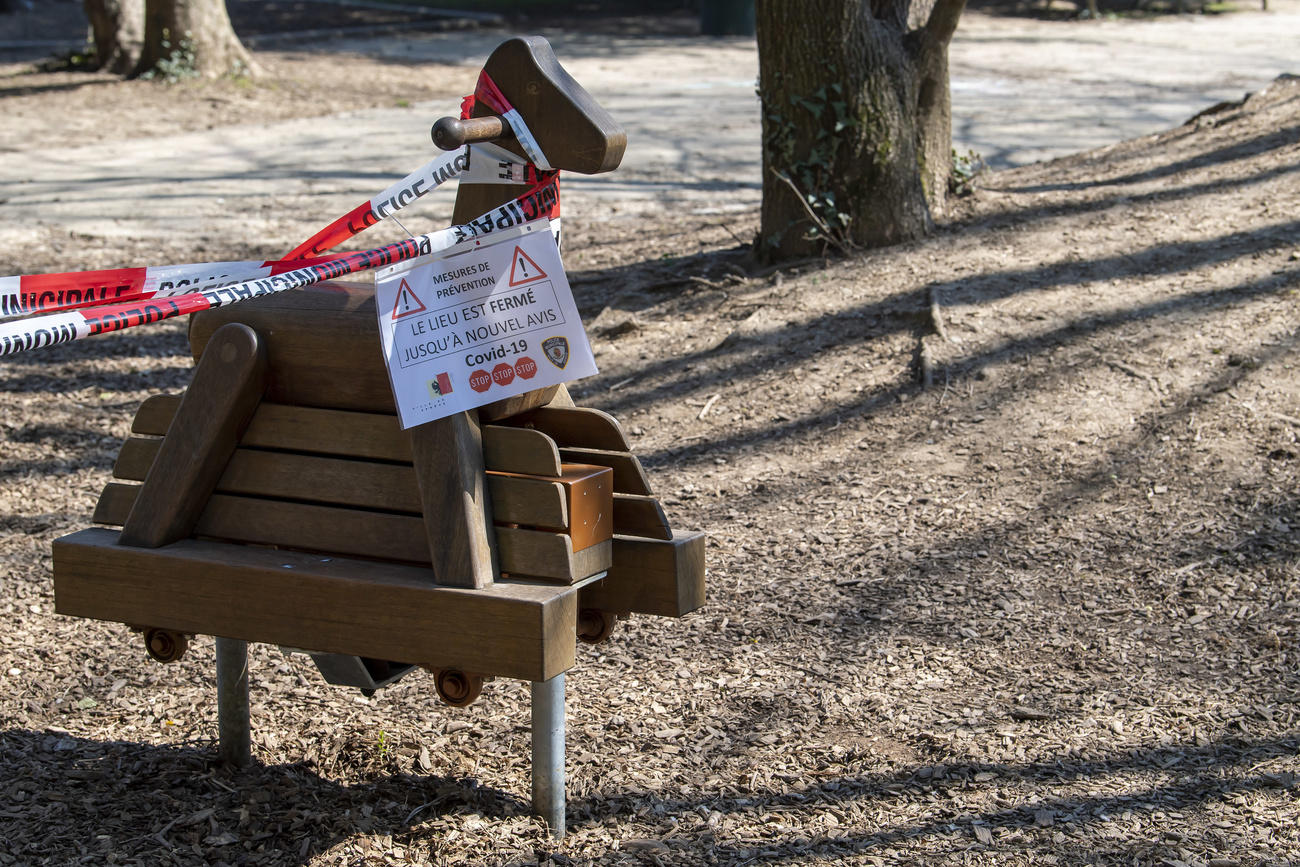
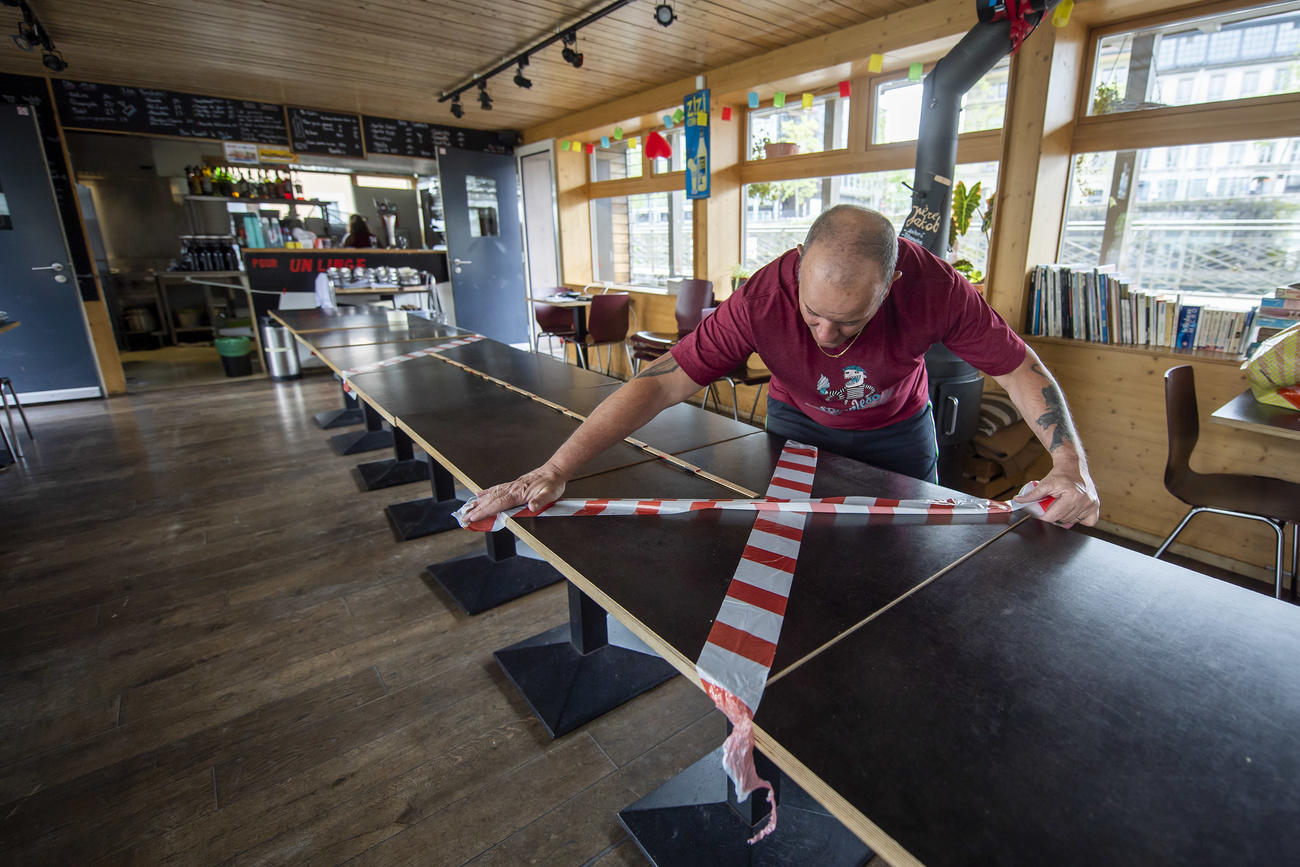

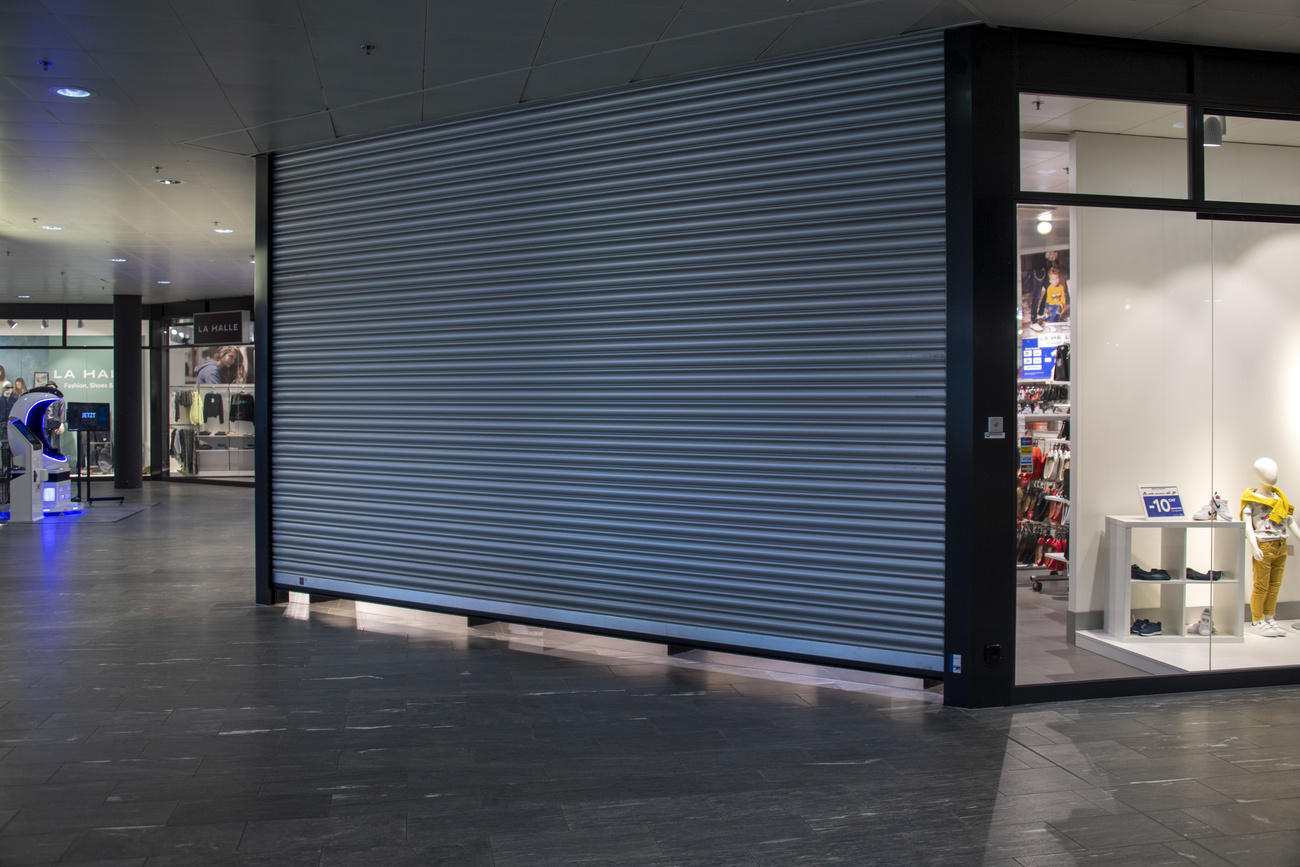
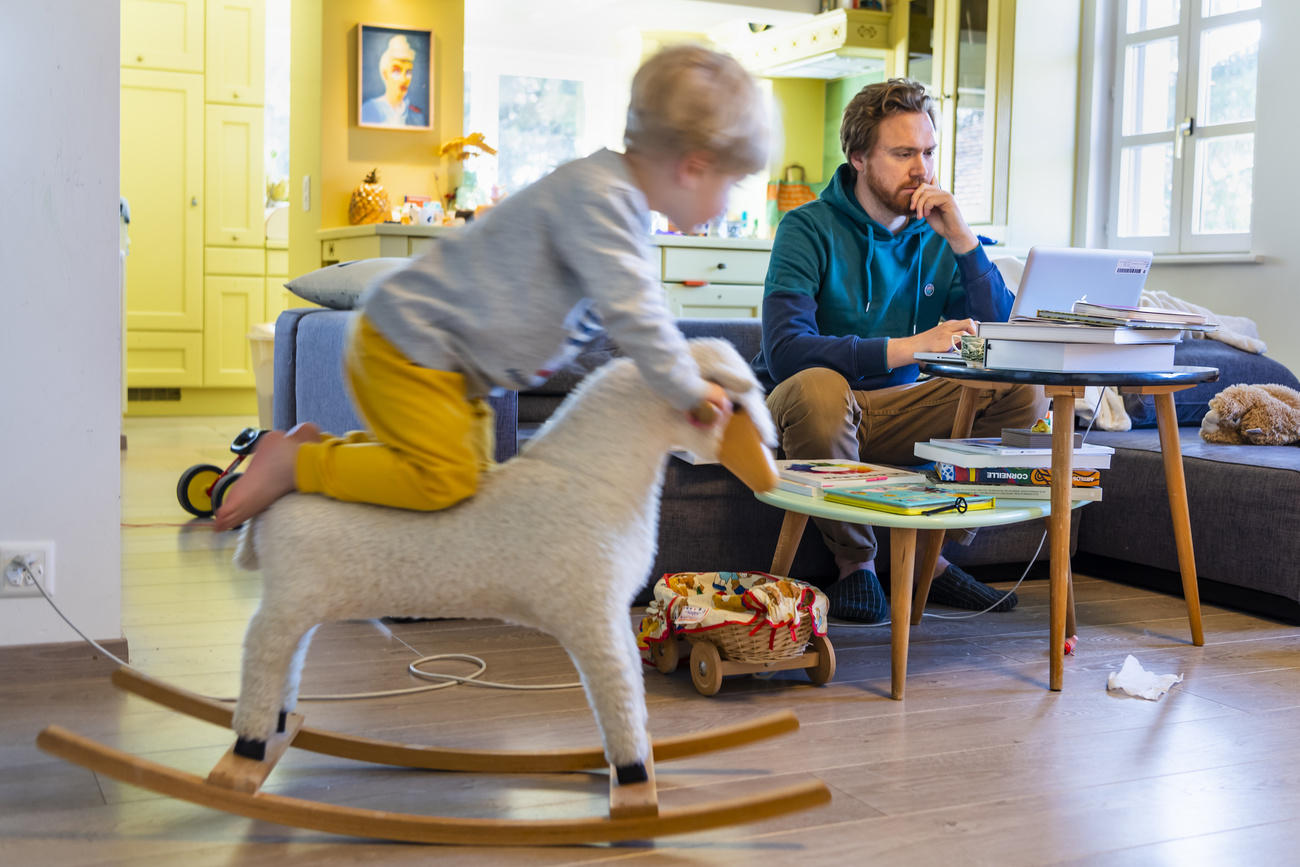
You can find an overview of ongoing debates with our journalists here. Please join us!
If you want to start a conversation about a topic raised in this article or want to report factual errors, email us at english@swissinfo.ch.